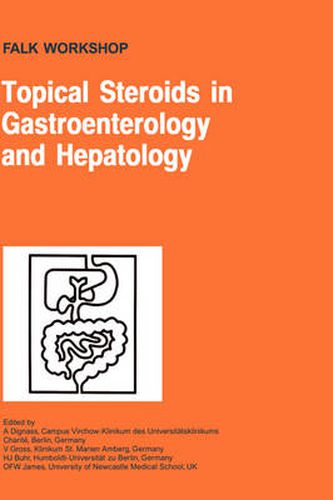Readings Newsletter
Become a Readings Member to make your shopping experience even easier.
Sign in or sign up for free!
You’re not far away from qualifying for FREE standard shipping within Australia
You’ve qualified for FREE standard shipping within Australia
The cart is loading…






This title is printed to order. This book may have been self-published. If so, we cannot guarantee the quality of the content. In the main most books will have gone through the editing process however some may not. We therefore suggest that you be aware of this before ordering this book. If in doubt check either the author or publisher’s details as we are unable to accept any returns unless they are faulty. Please contact us if you have any questions.
The topical glucocorticoid budesonide has long been well known in the medical community because of its beneficial effects in the treatment of chronic obstructive pulmonary diseases. Budesonide is characterized by a high first-pass effect and a rapid metabolism in the liver resulting in low systemic bioavailability and reduced frequency of side-effects compared to conventional glucocorticoids. For about a decade, budesonide has been used by gastroenterologists, and it has been proven especially effective in the treatment of distal ulcerative colitis and ileocolonic Crohn’s disease in a number of randomized controlled clinical studies. In recent years, budesonide has also been successfully used in the management of other diseases in the field of gastroenterology, hepatology, surgery and oncology. This book, the proceedings of a Falk Workshop on ‘Topical Steroids in Gastroenterology and Hepatology’, held in Berlin, Germany, on 14 June 2003, critically discusses the current role of budesonide in gastroenterology, hepatology, surgery and oncology and focuses especially on potential new indications for the use of budesonide. A number of smaller clinical studies and anecdotal case reports with impressive clinical effects are reported in patients with gastrointestinal, hepatic, oncological and surgical problems. In addition, the use of budesonide for the treatment of distal ulcerative colitis and ileocolonic Crohn’s disease is evaluated with respect to its role in an evidence-based management of IBD. Finally, as clinical experience with the use of budesonide is increasing, safety issues and the side-effect profile of budesonide is addressed.
$9.00 standard shipping within Australia
FREE standard shipping within Australia for orders over $100.00
Express & International shipping calculated at checkout
Stock availability can be subject to change without notice. We recommend calling the shop or contacting our online team to check availability of low stock items. Please see our Shopping Online page for more details.
This title is printed to order. This book may have been self-published. If so, we cannot guarantee the quality of the content. In the main most books will have gone through the editing process however some may not. We therefore suggest that you be aware of this before ordering this book. If in doubt check either the author or publisher’s details as we are unable to accept any returns unless they are faulty. Please contact us if you have any questions.
The topical glucocorticoid budesonide has long been well known in the medical community because of its beneficial effects in the treatment of chronic obstructive pulmonary diseases. Budesonide is characterized by a high first-pass effect and a rapid metabolism in the liver resulting in low systemic bioavailability and reduced frequency of side-effects compared to conventional glucocorticoids. For about a decade, budesonide has been used by gastroenterologists, and it has been proven especially effective in the treatment of distal ulcerative colitis and ileocolonic Crohn’s disease in a number of randomized controlled clinical studies. In recent years, budesonide has also been successfully used in the management of other diseases in the field of gastroenterology, hepatology, surgery and oncology. This book, the proceedings of a Falk Workshop on ‘Topical Steroids in Gastroenterology and Hepatology’, held in Berlin, Germany, on 14 June 2003, critically discusses the current role of budesonide in gastroenterology, hepatology, surgery and oncology and focuses especially on potential new indications for the use of budesonide. A number of smaller clinical studies and anecdotal case reports with impressive clinical effects are reported in patients with gastrointestinal, hepatic, oncological and surgical problems. In addition, the use of budesonide for the treatment of distal ulcerative colitis and ileocolonic Crohn’s disease is evaluated with respect to its role in an evidence-based management of IBD. Finally, as clinical experience with the use of budesonide is increasing, safety issues and the side-effect profile of budesonide is addressed.